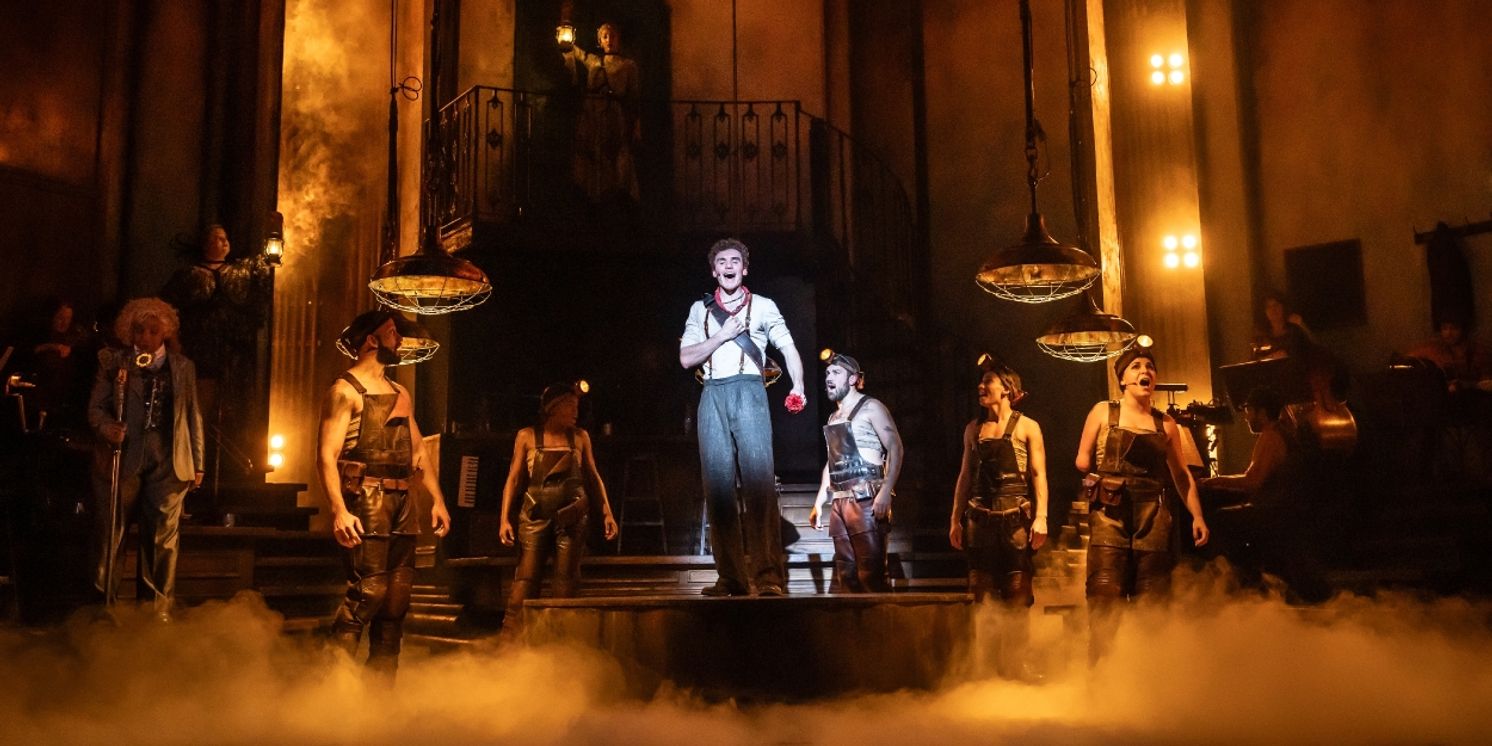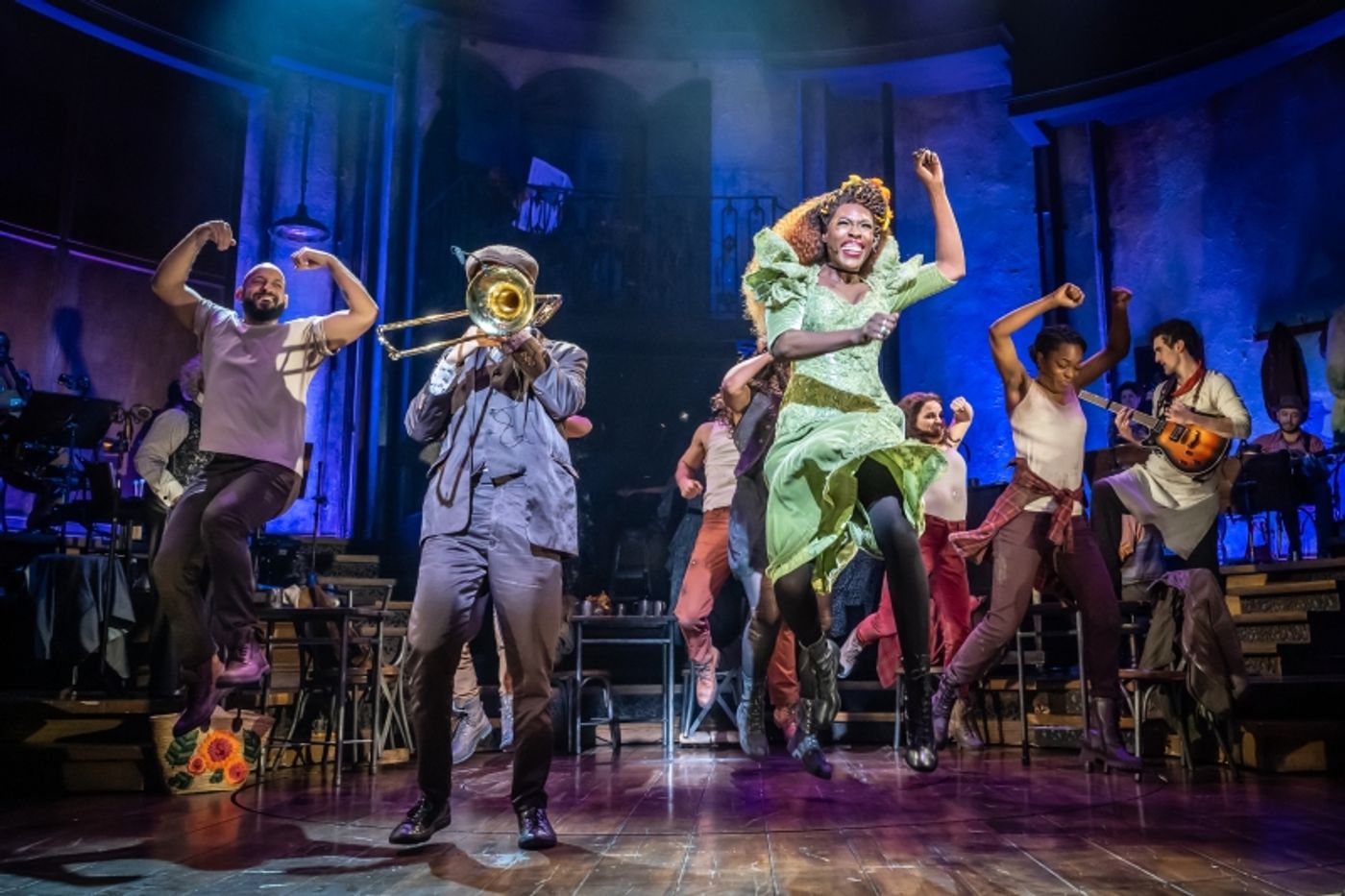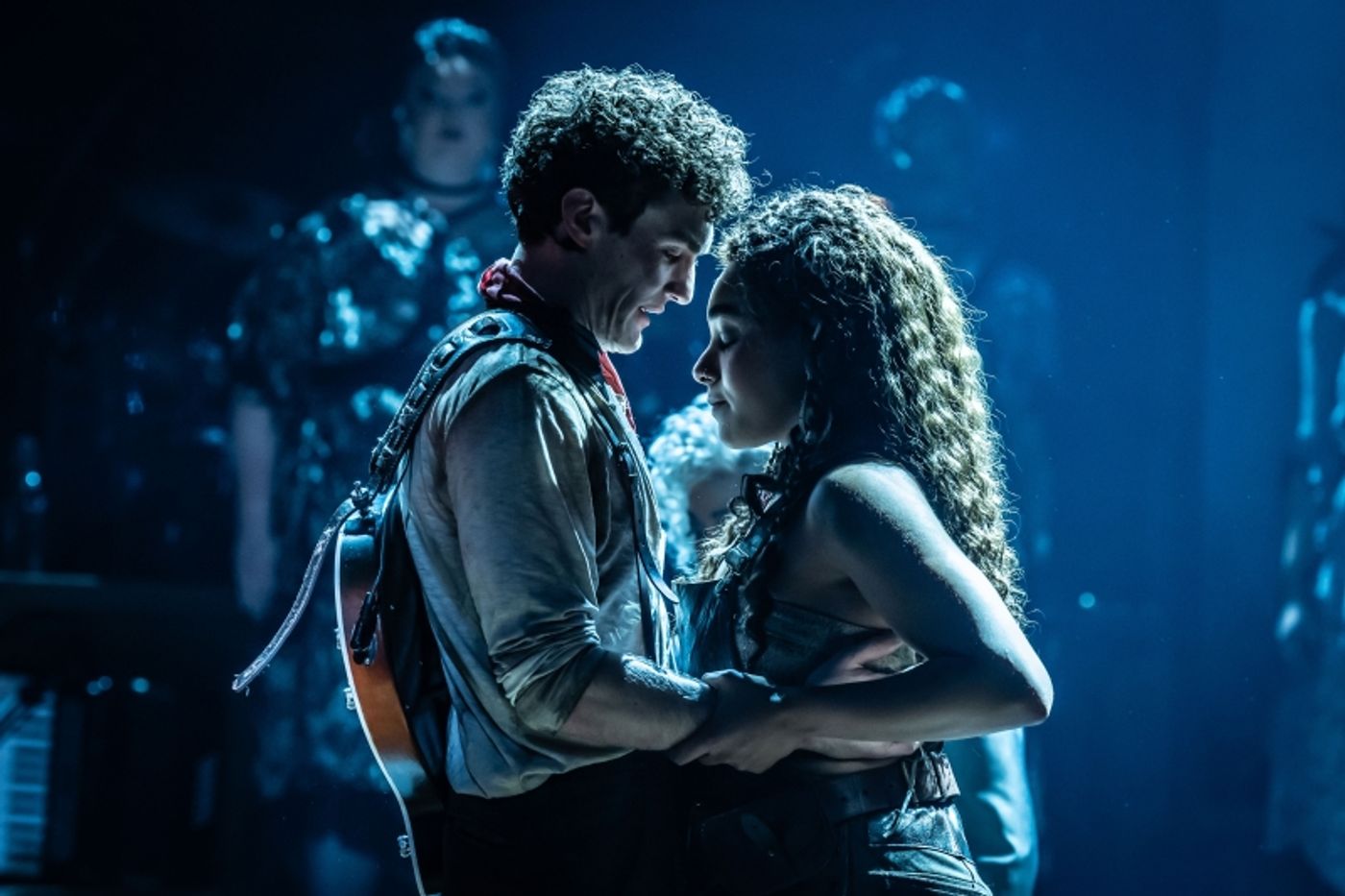Review: HADESTOWN, Lyric Theatre
The hit musical transfers to the West End.

![]() When London saw Hadestown in 2018, the nation went wild and audiences flocked to the Underworld (then hosted by The National Theatre on the Olivier stage). The show’s 18-year journey is finally crowned by a highly anticipated and long-awaited run in the West End after garnering eight Tony Awards in 2019 and becoming the longest-running production at the Walter Kerr on Broadway (where it’s still on to this day).
When London saw Hadestown in 2018, the nation went wild and audiences flocked to the Underworld (then hosted by The National Theatre on the Olivier stage). The show’s 18-year journey is finally crowned by a highly anticipated and long-awaited run in the West End after garnering eight Tony Awards in 2019 and becoming the longest-running production at the Walter Kerr on Broadway (where it’s still on to this day).
Anaïs Mitchell’s Grammy-winning blend of Americana and Dixieland Jazz has charmed its way into being one of the most streamed cast recordings of all time and boasts a very passionate fandom. It went from being a small indie project with a concept album to taking over the musical theatre world. The plot follows Orpheus as he falls for Eurydice and then ventures into the land of the dead to bring her back to Earth, while we’re given a privy look into Hades and his wife Persephone’s private life and marriage.
Created with director Rachel Chavkin, it’s a story of tragic love and politics, defeat and defiance. An epic anthem for the lovers and the runaways. The actors are mostly new to Hadestown (Hades’ underground factory), with only Gloria Onitiri returning as Persephone (rather than a Fate) and Beth Hinton-Lever in the ensemble. The main cast features Dónal Finn as Orpheus and Jamie Lloyd’s Sunset Boulevard’s Grace Hodgett Young as Eurydice, while Zachary James and Melanie La Barrie are Hades and Hermes. They’re an exciting team who carry the intensity and high-stake energy of the tale with precise delivery.

They have a grungy, unpolished aesthetic against the earthy tones and that immediately recognisable New Orleans balcony that looks down on a stage designed by Rachel Hauck. Sizeably smaller than its National Theatre ancestor, it’s positively more compact and resembles more of a commercial success, leaning into its gig-theatre nature more than it used to. Hadestown has the rare gift of appealing to a broad range of ages and backgrounds. From climate change discourse and social politics to myth reinvention and emotional romance, it’s bountiful in subtext and there are plenty of interpretative strands.
While this iteration doesn’t boast the incredible names it once did (Patrick Page as Hades was a wildcard that resulted in astounding results), the members of the company are each a star by their own accord. They shine brightly with powerhouse performances, but never overshadow or overpower one another. It’s a cohesive and steady group with tremendous voices that would stir the dead themselves.
La Barrie brings the house down from the start as Hermes, Hadestown’s stylish, sparkling master of ceremonies and narrator. A euphoric entrance later, Onitri’s Persephone is sunshine in heels until she swaps her grass-green dress for an outfit better described as funeral attire when she descends to join her husband Hades. They two are vocally astonishing, soaring with belting power regularly alongside their Eurydice.

Now a fully fledged star, Hodgett-Young is, once again, astounding. The wilted innocence in her portrayal is crowned by the emotional realisation while she sings “Flowers”, voice lightly and purposefully cracking with raw heartbreak. Standing in front of her, Finn is a delicate and rather meek Orpheus who overuses his higher register, insecurely slipping into a falsetto whenever he can. He is mocked by the Fates, plagued by doubt and insecurity during his “trial of trust”, during which he looks a bit like an addict going through withdrawals. While perhaps not as decisive or charismatic as Reeve Carney was in the role, he’s the perfect adversary to James. An imposing and poisonous Hades, he has a growling charm. His king of the dead is dangerously suave and suavely dangerous in his black pinstripes, long leather trench coat or rolled-up sleeves that show off a brick wall tattooed on his left forearm.
The Fates - the real villains of the story! - are absolutely fantastic. The trio, composed of Bella Brown, Madeline Charlemagne, and Allie Daniel are a constantly taunting presence, taking pleasure in malice as they ultimately drive the tragic narrative. They join the band (who are positioned at the sides of the stage) with instruments, meddling with the audience’s reception of the theatrical pretence. Mitchell’s score is an eclectic and electric jam session that accompanies the full piece. There are very few original musicals that are entirely sung-through these days, never mind a jazz one of this size.

The smaller space concentrates the energy, allowing David Neumann’s choreography to carry even more infernal hustle and bustle on Hauck’s design. It’s a rousing work of art in all aspects. Hades’ whims and fancies have shortened Persephone’s time on Earth, creating shorter summers and unyielding hunger while labour is seen as a luxury in a very late-stage capitalistic system in the Underworld. It doesn’t even sound like we’re talking about fiction.
Hadestown is currently booking until December at the Lyric Theatre.
Photo credits: Marc Brenner
Reader Reviews
Powered by
|
Videos

